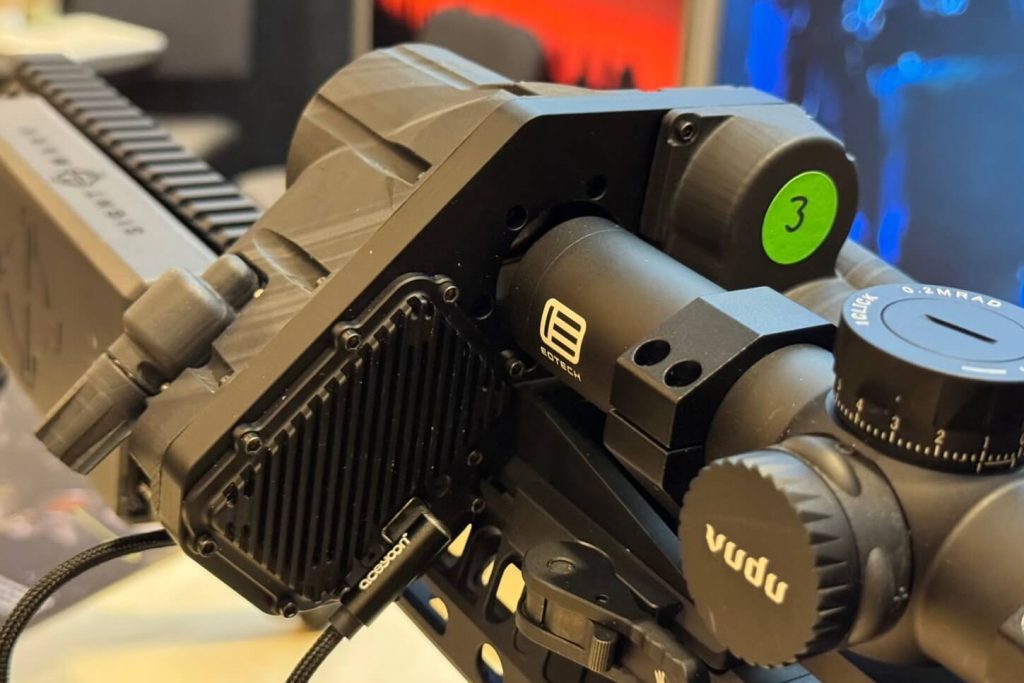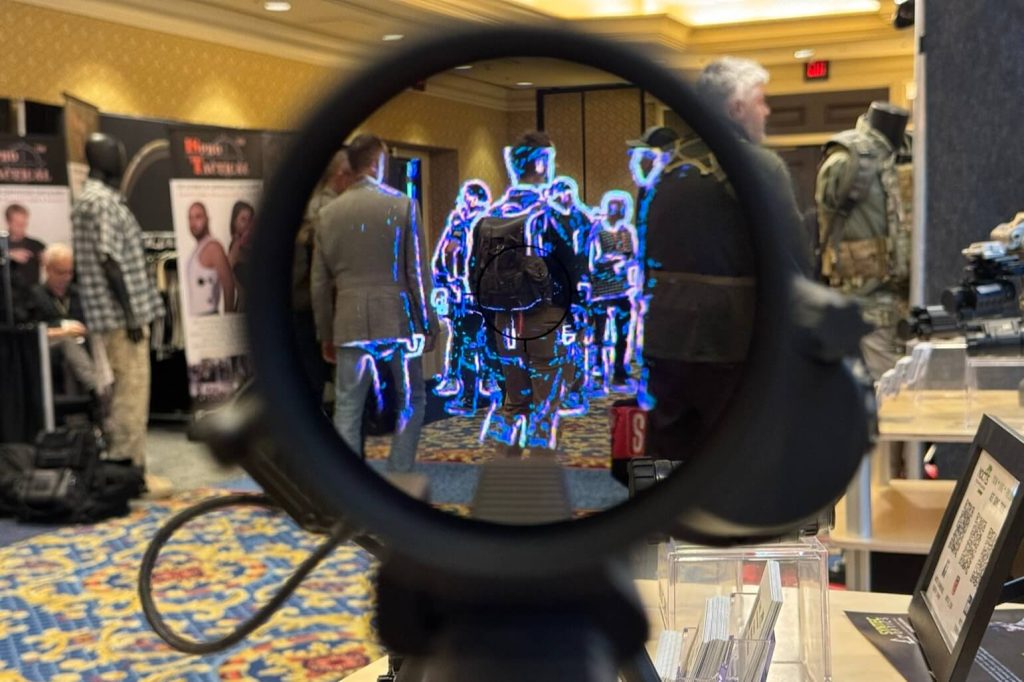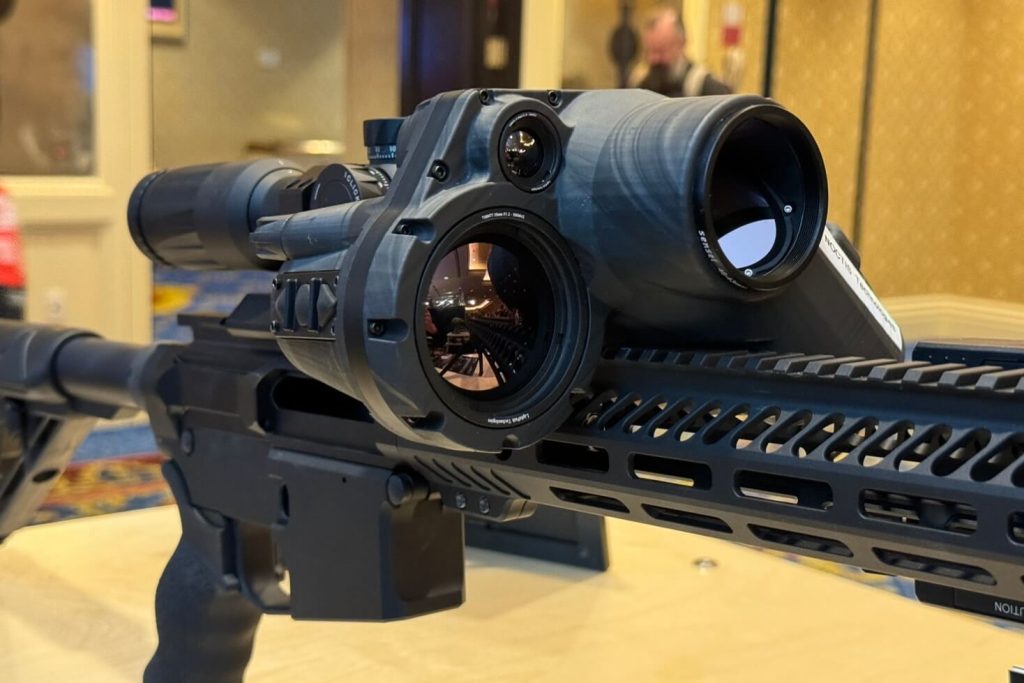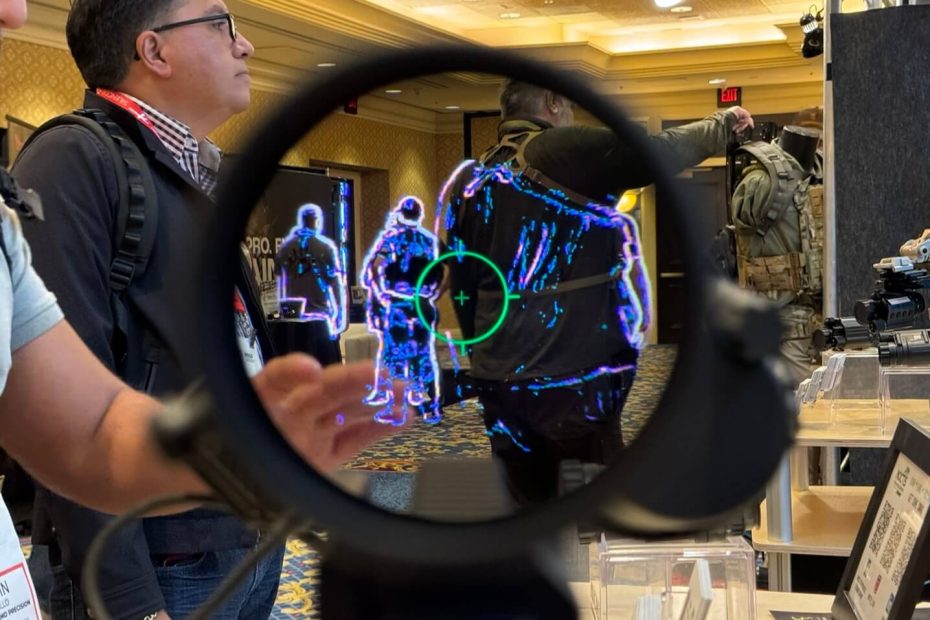
In a move that builds on the long-standing use of thermal overlay technology by the U.S. Army, Syntec Optics has introduced its cutting-edge Thermal Clip-On Imager, the Phoenix.
Since 2008, the military has relied on Enhanced Night Vision Goggle (ENVG) technology for target and threat detection. However, the Phoenix takes this capability to the next level!
The clip-on is not your average infrared thermal device. The Phoenix has the unique ability to transform nearly any low-power variable optic riflescope or LPVO into a fused weapon sight.
By capturing both wide-field thermal scenes for heightened situation awareness and high-resolution, on-axis thermal details, the Phoenix combines these elements into a single, projected image within the riflescope.

Peering through the riflescope, users experience the fusion of the thermal image overlayed with the normal visible scene. All other thermal clip on devices block the glass and provide an LCD screen that the optic zooms in on.
However, the Phoenix provides an unparalleled thermal detection capability seamlessly integrated with a conventional daylight optic. The technology doesn’t stop there. The Phoenix offers multiple modes of use. This includes a full thermal mode and an outline mode specifically designed for detecting camouflaged objects.

Ease of use is a key feature of the Phoenix. By simply pressing a button, all modes toggled through, allowing for quick transitions between functions.
This innovative thermal imaging device opens up new possibilities for long-range observation and target identification.

For years, the industry has acknowledged the advantages of thermal overlay technology, and Syntec’s Phoenix takes a significant step forward by introducing enhanced capabilities to the market.
Check out the video I posted on my Instagram showcasing this clip-on in action below:
According to Syntec Optics, this model is an initial prototype. There’s potential for a reduction in overall size before the final production version hits the market.
Additionally, they confirmed that civilians will have the opportunity to purchase these units. While the version on display features a 320 thermal sensor, a representative highlighted that the Phoenix is sensor agnostic. This means it can accommodate various brands and higher resolution sensors as they become available, offering flexibility and adaptability to evolving technological advancements.
Stay tuned for updates and, hopefully, a full review in the future.
